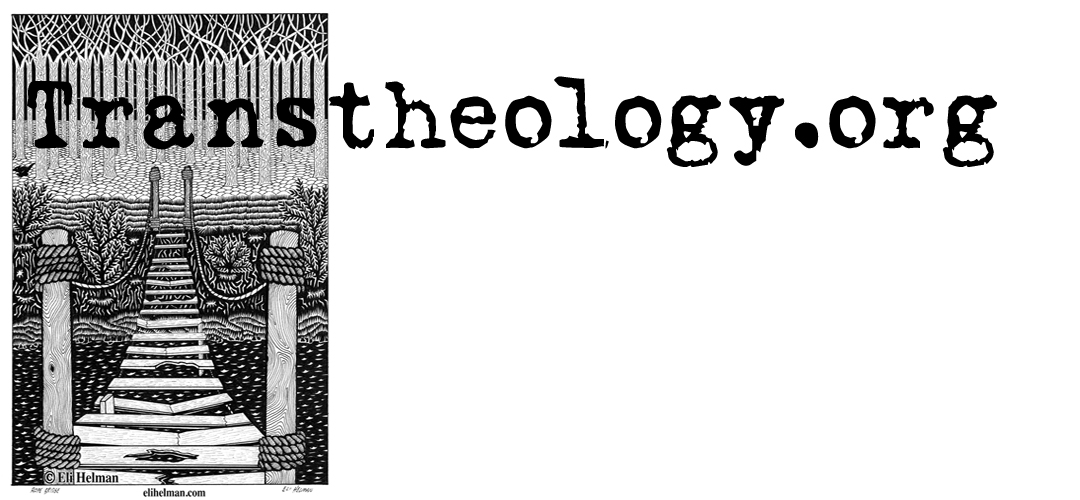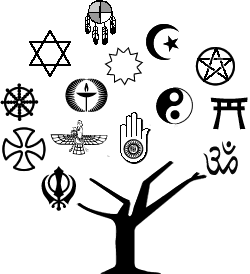Transtheology is not limited to Christianity, or any single tradition. Here you'll find transtheological intersections between traditions; updates will be made as those more knowlegable than I make their contributions. If I've missed a tradition that warrants transtheological inclusion, please let me know.
Does one re-imagine the imago Dei or does one, in fact, de-imagine it? The former is done with all our isness intact. The latter is done with the intention of putting our isness to the side. This intentionality is an important piece in the exploration of trans-exegetical work across traditions, for they all seem to have something to say about what it means to be in a body.
If one de-imagines the imago Dei then finding and witnessing God in others is going to be a very different experience that that afforded by binaristic theologies. The first obvious, physical thing we notice is that we are all externally similar and different. How do we find God in that mix of same and different? We have to look for the ways we are the same. This transcends the unseen yet obvious infrastructures that keep us alive as fleshy creatures. We must also look for the shared differences, those other human basics we all have to some degree or another. We need people; we have a desire to learn; we emulate others; we need to belong; we need to know where we are; we have talents: there are so many. We are the interdependent web of life. We are one, at least in the way Carl Sagan puts it: “The world in an organism, and an organism at war with itself is doomed.” The very things that make us one also make us many.



"Let us suppose that God is outside traditions; that God transgresses sexual traditions and, on the contrary, God imagines new traditions all the time. Why not God the Faggot? Why not Mary the Queer of Heaven? The fact that nothing is known of Mary or God’s sexual identity liberates them; nothing is fixed, except for gender roles, and these are already well contested inside and outside Christianity.”
--Marcella Althaus-Reid,Indecent Theology,
68.